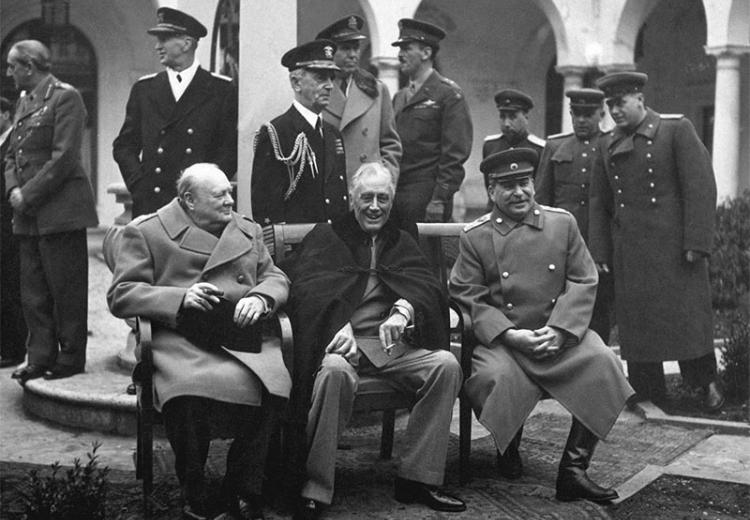Lesson 3: Victory and the New Order in Europe

Conference of the Big Three at Yalta makes final plans for the defeat of Germany. Prime Minister Winston S. Churchill, President Franklin D. Roosevelt, and Premier Josef Stalin. February 1945.
By the beginning of 1944, victory in Europe was all but assured. The task of diplomacy largely involved efforts to define the structure of the postwar world. Among the salient issues with which allied diplomatists grappled were the fate of the Eastern European nations, the future of Germany, and the establishment of a new international organization to replace the League of Nations. Behind them all was the problem of whether the liberal, democratic West and the Marxist, totalitarian Soviet Union could continue to coexist as allies. Throughout modern history, former Grand Alliances—including the ones that defeated Germany in World War I, Napoleon's France in the early nineteenth century, and Britain in the age of the American Revolution—had come apart once they had served their purpose. President Roosevelt and large numbers of the American people believed that the World War II Grand Alliance would have a different future.
Guiding Questions
Why and how did the United States attempt to preserve the Grand Alliance as American diplomats addressed European issues?
Learning Objectives
Explain the ways in which the USSR, the United States, and Britain differed on the future of Germany.
Explain the differences between the three allies over the future of Eastern Europe, with particular attention to the problem of Poland.
Explain the role played by the establishment of the United Nations in inter-allied diplomacy.
Explain the ways in which the evolving military progress of the war affected diplomatic decision-making.
Explain the American approach to the shaping of the peace.
